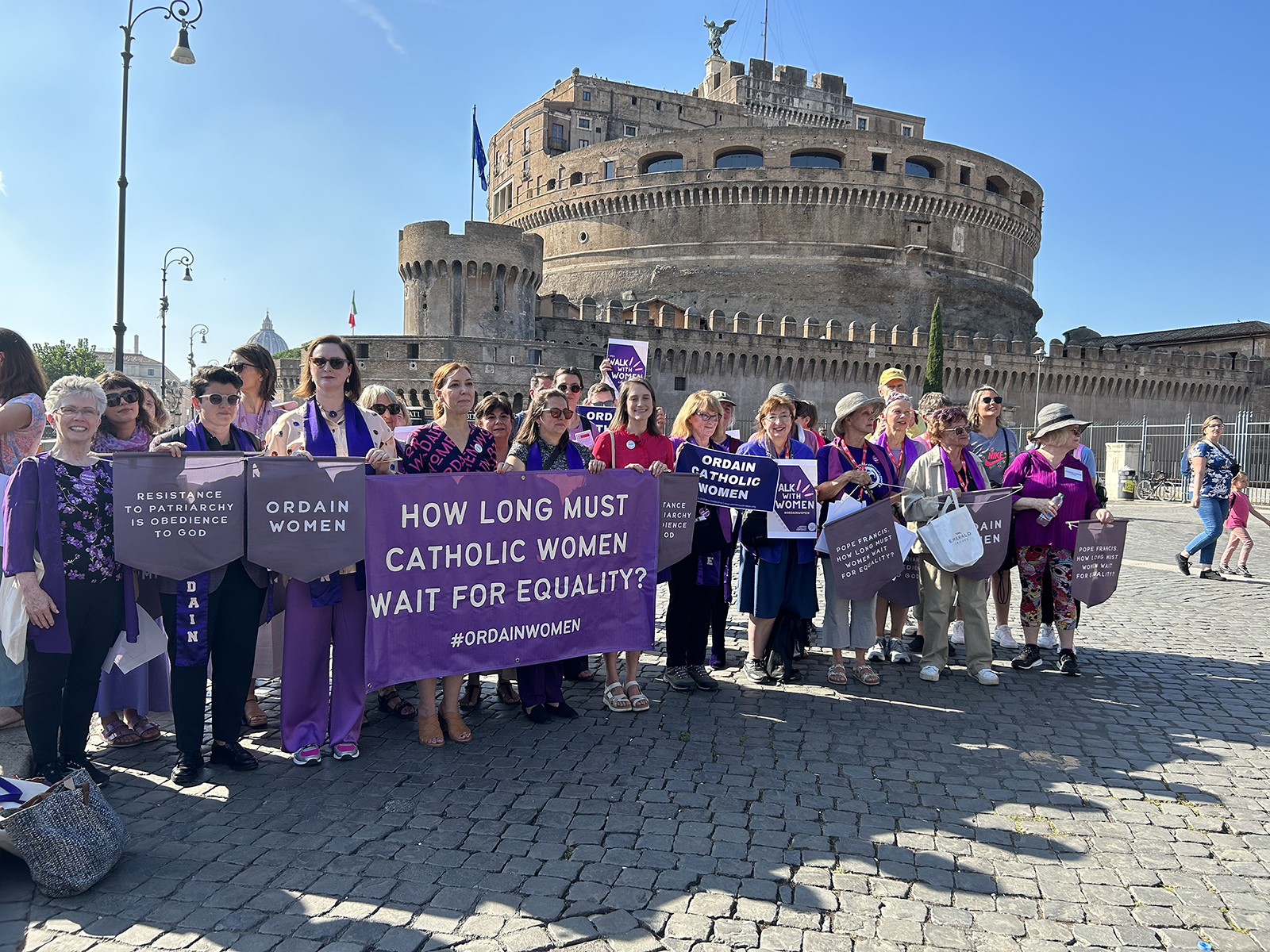VATICAN CITY (RNS) — A three-year process aimed at putting the most pressing concerns of lay Catholics front and center in the church was reshuffled on Thursday (March 14), as the Vatican announced that it plans to push discussion of “doctrinal, ethical and pastoral issues that are controversial” to June 2025.
The controversial issues include allowing women to be ordained as deacons, as well as welcoming LGBTQ Catholics. These and other issues of importance to Catholics, discerned in discussions at every level of the church that took place since 2021, were the subject of a meeting of bishops and laypeople at the Vatican in October and a report listing the main concerns of the faithful.
But a second summit, scheduled for October 2024, will now focus not on the issues the Synod on Synodality raised, but on the process itself.
RELATED: Pope Francis’ Synod Made Few Waves, but Organizers Say It’s Already Changing the Church
“The synod of bishops will be centered on the theme of synodality,” said Cardinal Jean-Claude Hollerich, the relator general of the general assembly of the synod of bishops, at a news conference Thursday at the Vatican.
“Addressing all these other topics within the context of the Synod on Synodality is impossible,” he added.
Synodality is a loosely defined term used by Pope Francis to describe “a new way of being church,” which focuses on dialogue, welcoming and listening. But while promising to reform the traditionally hierarchical structure of the church, Francis has made clear that synodality is not synonymous with democracy. Instead, synod organizers have at various times described the synod as a soup of many ingredients, a multicolored tapestry, a large tent and a mosaic.
“Only those who experience synodality understand what it means and what its fruits are,” said Cardinal Mario Grech, the general secretary of the synod, at the same news conference.
In a letter signed Feb. 22, Francis had already ordered the creation of 10 study groups, each of which will address a topic that emerged from the October 2023 synod session. Because the complexity of these topics would distract from the main theme of the synod, the pope wrote, the synod organizers must collaborate with curial offices to study them further.
These topics include ecumenical dialogue, the formation of priests, the role of bishops and papal representatives, and theological questions on ministries and “controversial doctrinal, pastoral and ethical questions.”
Dozens of women march to the Vatican, Oct. 6, 2023, calling for female ordination. (RNS photo/Tom Reese)
The study group focusing on ministries is where “the question of women’s possible access to the diaconate can be properly posed,” the pope’s letter read, while “the circular relationship between doctrine and pastoral care” will be handled by another study group.
The tension between doctrine and pastoral care is at the heart of discussions about LGBTQ Catholics, and many synod participants advocated for greater welcoming and inclusion.
On Thursday the synod office announced the formation of an additional five working groups to address topics such as the role of bishops, decentralization in the church and how to inject synodality in church structures, theology and mission. These are all in keeping with the theme of the next assembly, “How to be a synodal church on mission?” Their work will be highlighted at the synod’s next meeting, in October 2024.


